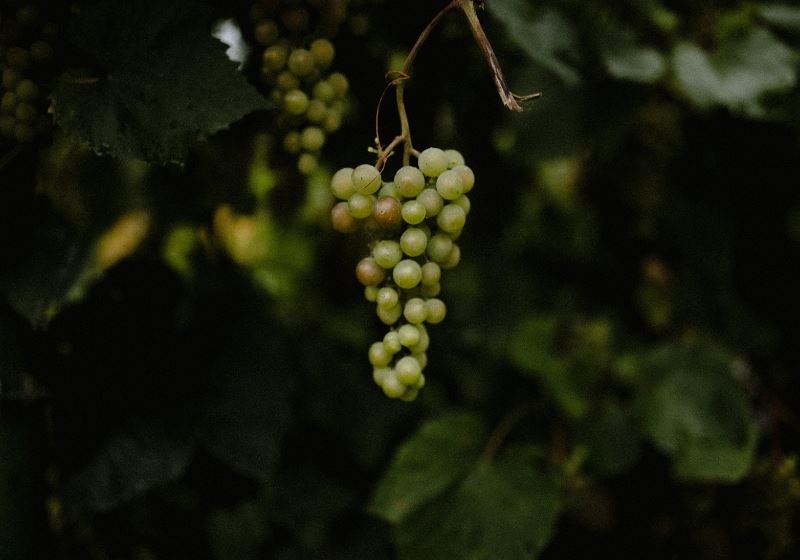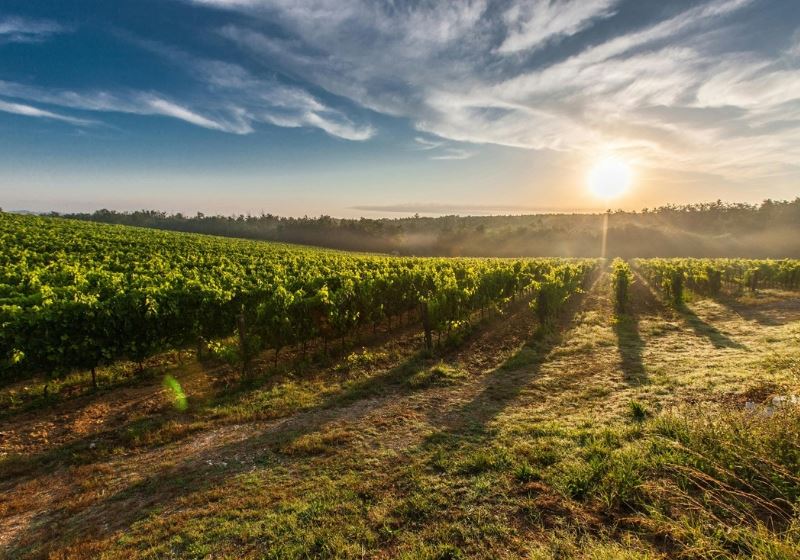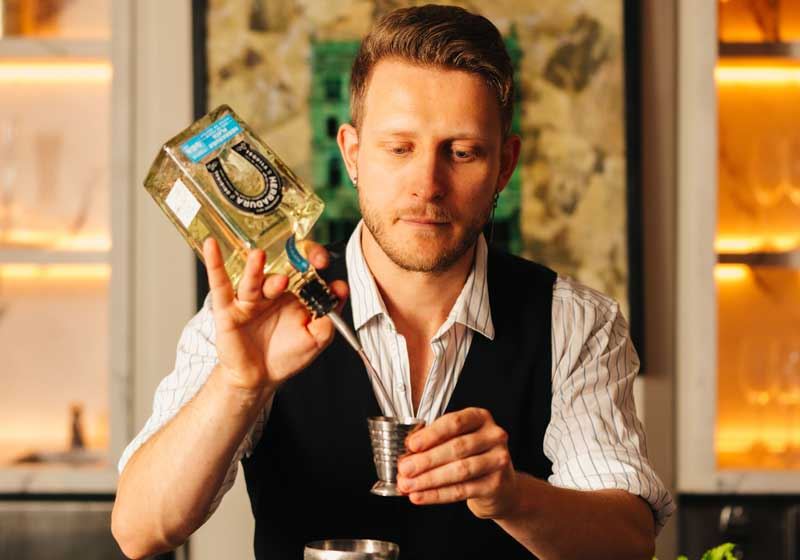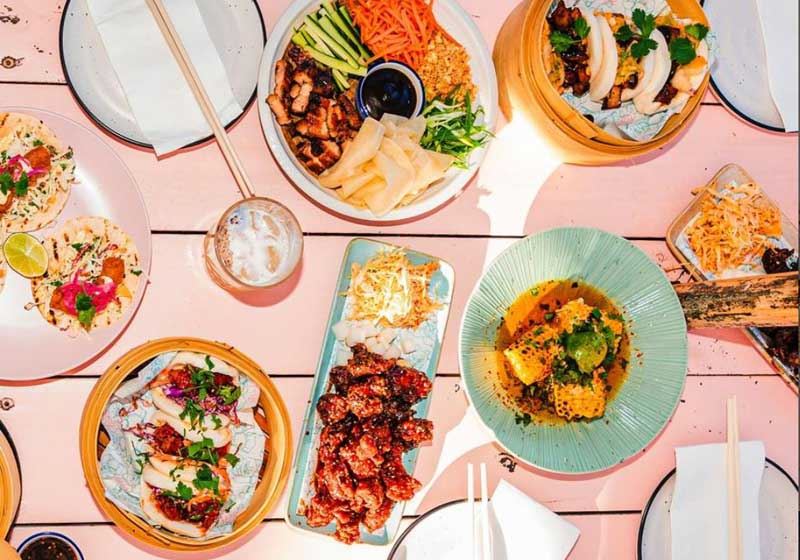By Dan Sims
From The Wine Guide
He's a handsome one this Liam O'Brien, isn't he? Though surely charm and handsome good looks are only just the introduction. This is one young gun who has worked very hard and accomplished much in his relatively short Sommelier career.
We've witnessed first hand the maturity and focus from not only from his tenure at Circa, but his ability and skill when taking out the Dux in the inaugural Sommeliers Australia Education Scholarship; where we were judges, so we know. First place seems to be a bit of a theme for Liam as he also managed to take out the Dux of the Len Evans Tutorial in 2010; a rather mighty achievement when you not only consider the program, but who he was up against.
Leaving his head Sommelier role at Circa over a year ago, he joined Andrew McConnell at the brilliant Cutler & Co. to lead the wine team. Cutler & Co. is now a home he has certainly made his own, with a strong team that he built as he has created one of the more dynamic wine lists in Melbourne. Though you'd expect nothing less of this rather talented young man.
With a little side project with good mate Matt Brooke (Vinero & Macedon Edge), you can also add wine making to the mix as together they are producing some rather delicious Pinot Noir from Macedon. What clever fellows they are.
But enough from us. Ladies and Gentlemen, we give you Mr Liam O'Brien!
How long have you been working as a sommelier and what compelled you to travel along the wine route? What made you want to be a sommelier?
I've been a full-time somm since 2006. A few years before that I was at uni and working as a supervisor at a restaurant when I signed up to do a beginners' wine course – I actually looked forward to each class and did my homework each week. It was a light bulb moment and I realized that wine was something I could really sink my teeth into.
How long have you worked at Cutler & Co.? Tell us briefly about it.
I've been at Cutler & Co. for just over a year now. I worked with Andrew, JP and Chris (the three wise men of the kitchen) at Circa and love working with their food because it is so wine friendly. We have a fantastic front-of-house crew as well, everyone really works for each other - it is a real team environment.
Briefly describe the philosophy of the wine list you manage/work with? How big is it? Highlights? Philosophy?
We have 350 wines on the list, including fortifieds. The philosophy is to focus on classic varieties from classic regions, and to provide as much variety in terms of style, vintage and price point as possible.
I want it to appeal to those with simple tastes as much as it appeals to people in the industry so whilst I try to throw in a few quirky things here and there, the comment I least want to hear is 'I don't recognize any wines on your list'. Obviously it does still happen, but I want to make people feel as comfortable as possible in the restaurant.
When choosing wines by the glass, what are the key factors you look for?
I work on the wines by the glass with Leanne Altmann, our assistant sommelier - first and foremost we choose wines with our menu selection (degustation) in mind. From there we fill the gaps making sure that there is a balance of wine styles and that overall, it is a good representation of the list proper. If someone wants a variety that we don't offer by the glass we usually open something for them.
Is there one wine style/variety that sells the most on your wine list at present?
The greatest variety in the world, Pinot Noir!
What's your favourite food & wine match on the menu at the moment and why? And any tips for beginners?
I would have to say the beef tartare with Champagne. It was Leanne's suggestion and is a classic match - I love that even though the dish is far from a classic interpretation, the match still works. There is a smoked egg, lots of herbs like sorrel and chickweed and bath oliver noodles for texture. The generosity of Perrier-Jouët NV works with the bolder flavours of the dish and has the acidity to keep everything fresh and lively. It goes to show that if you know your fundamentals of matching, and make sure that you taste/try everything, you should confidant enough to serve whatever you feel is appropriate.
We all have strengths and weaknesses, right? Is there a wine region/country in which you struggle with when studying?
You know what I'm going to say – Bordeaux. I fail to connect with the wines on a regular basis. Even though some of the greatest wines I have tasted have been from that region – those with a discernibly favourable quality to price ratio are few and far between. I would also have to say I have had far less opportunity to taste great Bordeaux than wine from other premier regions, so maybe it is something that will come to me in time.
Is there one wine book you can't live without? What's your favourite?
Jancis Robinson's The Oxford Companion to wine is the one I pick up most often, my favourite is The Story of Wine, by Hugh Johnson.
What wine/region/country is exciting you the most at present?
I'm going through a phase where I am really excited and engaged by high quality Riesling. Delicate Australian examples from regions like Frankland River and Tassie; the great wines of Europe – lately I have been so impressed by Albert Mann, Nikalaihof, Keller, JJ Prüm; and the 2011 TBA from Framingham is mind-blowing.
What was the last bottle of wine you tried? Where were you?
The last bottle I opened at home was 2005 Spinifex Indigene – it was drinking well, mature but with time ahead of it. The last wine I tasted was 2009 Chalmers Passito – I finished the dregs out of a bottle at work. Dee-licious!
What's the most exciting Australian wine you've tried recently and why?
The last two wines I have found, and described to customers as exciting, are 2009 Friends of Punch Bannockburn Vineyards Syrah and 2010 Mac Forbes Woori Yallock Pinot Noir. I love the structure and palate shape of both those wines with respect to what they represent within their variety and how it is expressed in Australia. I am also excited by how they will age, and would love to see them in 10 years' time.
Have you an all time favourite wine and/or region? Was it a 'light bulb' moment?
I could never have an all time favourite wine or region. I love variety too much and am fascinated by all the different ways grapes can be expressed as wine, as well as all the other information they can transmit along the way. To use a Philip Rich-ism though, if I was to drink from one region only for the rest of my life it would be Burgundy.
What do you see as the biggest challenge facing the restaurant/hospitality industry at present?
Staffing is the obvious one. I think there are too many liquor licenses given out and the pie is being sliced too thinly in terms of staff and revenue for all the businesses out there.
How can a guest get the most out of their wine experience at Cutler & Co.?
Trust the sommelier with as much information as you feel comfortable with, allow us to ask a few questions of you, and know that we want you to have the best experience with wine as possible.
Favourite lunch spot? Favourite luncheon wine?
I guess the place I've been to more times for lunch than dinner would be Izakaya Den.
Favourite luncheon wine is Claret of course. Favourite lunch wine, something that would work at Izakaya Den – a light, bright and textural aromatic white like Jamsheed Le Blanc Plonk.
Funniest/most embarrassing moment working in hospitality? (and you don't have to name where!)
I tipped a glass of Maury down a guy's back just a few weeks in to my tenure at Cutler & Co. He couldn't have taken it any better, I was horrified. I blame the tray – someone didn't fold the napkin correctly. Not my fault chef.
Career highlight so far?
Definitely taking dux at the Len Evans Tutorial.
What's the single most important piece of advice, on wine, you've ever been told?
Drink less, drink better.
Finally, do you have any tips/advice for budding young sommeliers looking to get into the industry?
The path is so well defined now, take advantage of the knowledge that is out there – ask questions of other somms, visit wineries and speak to winemakers, study hard, and get to as many tastings as possible.









